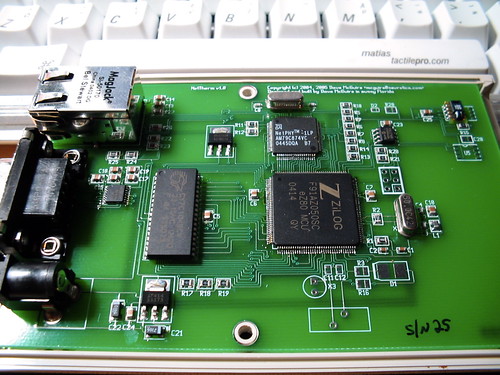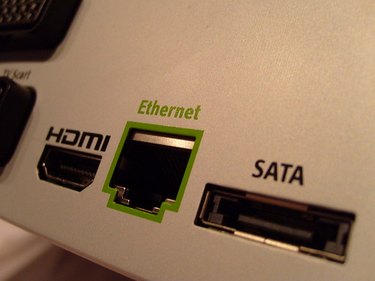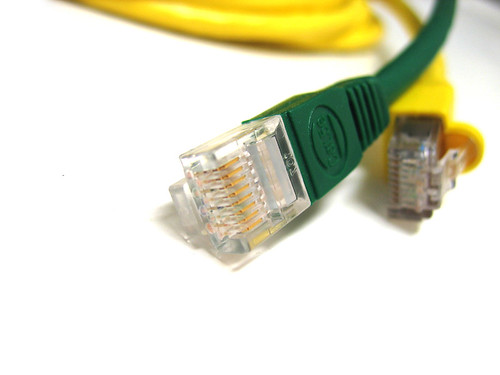
An Ethernet controller is an integrated circuit chip that controls Ethernet communications. Ethernet is the method most computers use to communicate with each other. This is also how most computers connect with the Internet. The Internet cable, which plugs into your computer, transfers data to the Ethernet controller, which decodes the data and puts it into a form your computer can use.
Function

Ethernet controllers examine each packet of data to determine if it is meant for the local computer or another computer on the network. If it is meant for the local computer, it decodes that information and relays it to the processor. If it is meant for another computer on the network, the information is discarded.
Video of the Day
Legacy Technology
Years ago, the Ethernet controller was composed of a group of IC chips that controlled the timing and decoding of the data that was received from and sent to the network. Advances in technology have allowed those separate IC chips to be combined into one chip.
Location

Most modern computers have built-in Ethernet controllers, which are on the motherboard. Older computers use a network interface card, which has the Ethernet controller chip on it.
USB Ethernet Controllers
Ethernet controllers in the form of a USB device now exist. These devices plug into a free USB port, and the Ethernet cable is plugged into them.
Ethernet Controller Failure
If your Ethernet controller fails, you will not be able to connect to the Internet or communicate with another computer on the network. Rather than having to buy a new computer, you can purchase an NIC or a USB Ethernet controller.